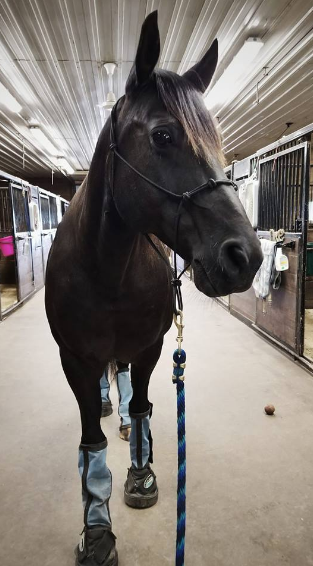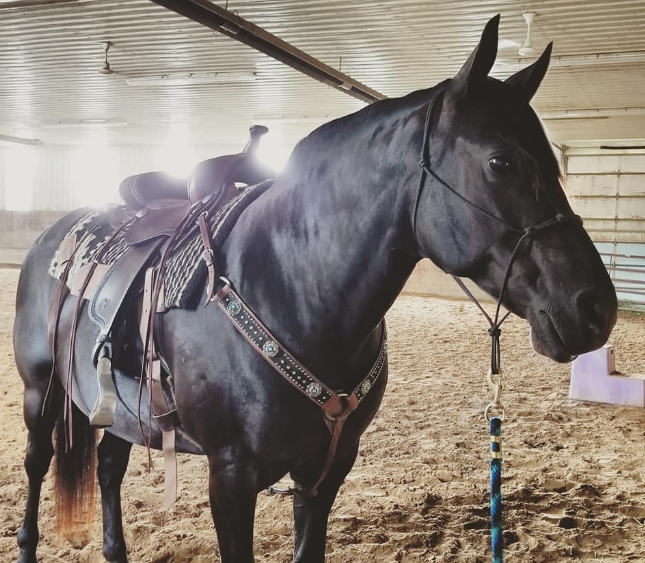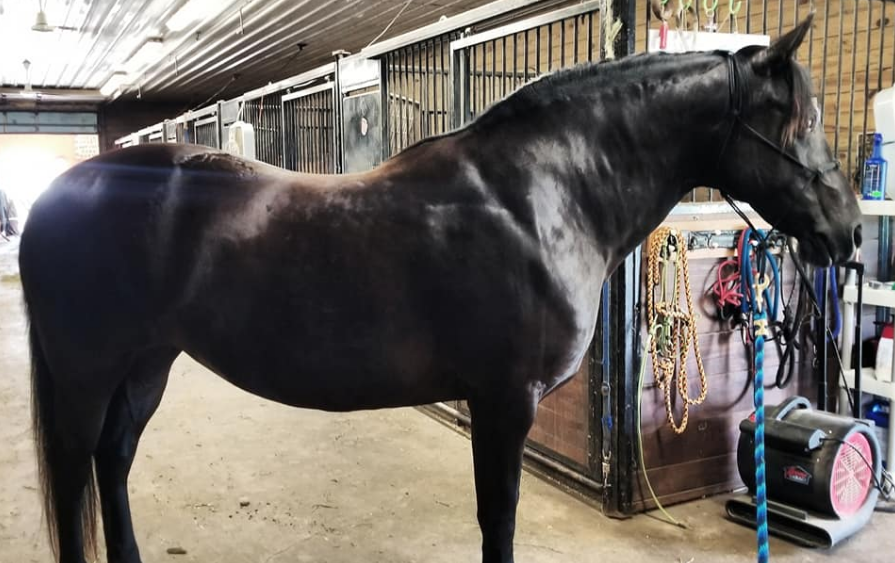X
HGG Community Forums
Log In to HorseGeneticsGame
HGG Community Forums
Join our discord server!
Howdy, Stranger!
It looks like you're new here. If you want to get involved, click one of these buttons!
Categories
- All Discussions61,407
- Announcements1,194
- HAJ Discussion59,057
- ↳ New Member Introductions68
- ↳ Help Me Out5,089
- ↳ Horses for Sale and Auction14,459
- ↳ Breeding Ads and Sales6,103
- ↳ Herd Helpers22,965
- ↳ Bug Discussion8
- Non HAJ Discussion1,156
- ↳ Saddle Sisterhood113
- ↳ Games, Contests and GiveAWays349
- ↳ Genetics305
In this Discussion
- Blaze5115 August 2018
- Daite Capaill August 2018
- High Five Acres August 2018
- Kat8805 August 2018
- SandyCreekAcres August 2018
- stacey August 2018
- TawnyEclipse August 2018
Who's Online (3)
- annismyrph 6:37AM
- Haystack 6:37AM
- Pagan 6:37AM
My horse has been diagnosed with Laminitis.
-
I had to have a vet come out to my barn this morning, due to my horse limping so bad that I knew something was really wrong. She has acute laminitis in her fronts. My girl, Jetta has always been an easy keeper and she has always had a cresty neck, and has always had some extra weight even after going to intense training for 3 months. I've been told shes a foundation bred quarter horse but I myself, and other people are convinced she has some morgan in her just because of how bulky she is. She is around 13 or 14 years old.
I am just wondering if anyone who has dealt with laminitis has any good advice to give me. She is my first horse and this is really the first big thing that shes ever had to deal with injury wise other then a few stitches on her nose once. We are figuring out her diet, she is back onto thyroid powder again, and also is getting higher dosages of bute per day for the next week or two. She will be getting radiographs closer to when the farrier is going to be coming out so we know where the bone is sitting and that way I have instructions for my farrier as to how to trim her now. On the bright side, she looks pretty adorable in her saferide boots. Lol.
Here are a few more photos of her to get an idea on how much of an "easy keeper" she is. She used to actually be alot heavier, we moved her into a different pasture with two geldings who also needed to be on a diet, and since then she has dropped a bit more weight and has more muscle definition.

No negative comments please. I am just looking for some advice.. or re-assuring words. It's the early stages so I know that it can be fixed. I'm just feeling really down right now because I hate seeing my furchild in pain. :(Post edited by AmethystStables at 2018-08-16 14:59:51Previously known as "lethalximpulse". -
I have a pony who founders all the time im still learning what works and what doesn't but grazing muzzles and slow feeding hay nets are really handy one thing i was also told being out in a paddock to exercise is better than locking them up and put food and water at opposite side of the yard encourage more walking which is good
-
I have a hazy memory of running cold water on the hoof of a horse at our riding program. I think laminitis was the reason we did this, though I don't have much to do with the day to day care of the animals.
Just checked with our barn manager, and she confirms that this can help when the laminitis is flaring up. Our vet also advised us to do it to prevent laminitis from starting when a pony got into the feed room and ate tons of grain. It did help for that. If you can get the horse to stand still with his foot in a bucked of cold water for a while, this, too, can help.
I hope you can get him over this flare up without any major issues.
-
I am very sorry you are dealing with this. Have you tested your horse for insulin resistance? Those fat pads suggest that you may be dealing with an IR horse. Is the hay tested? Is it free choice? How much grass is in the pasture? Do you have access to a dry lot? What exactly are you figuring out with her diet; is she getting any feed and if so what is the NSC? Is there heat in the hooves? When my co-worker's mare foundered so kept ice packs on the hooves in a little custom made bell boot that was essentially a sleeve for an ice pack.
Morgans were used along with Thoroughbreds to create the Quarter Horse breed. My foundation girl has a Morgan just as far back as she has Joe Handcock if I recall correctly.ID 213454 -
I had an apha mare that foundered and quickly abscessed in all four hooves. The front hoof abcesses popped out at the top near her coronary band and the back ones had to be dug out the of the soles. She was 3 months pregnant at the time. I caught it right away and soaked her feet as well as gave bute. She recovered fully and gave birth to a healthy colt. After she foundered, we cut grain from her diet and used a grazing muzzle in pasture. She was a super easy keeper and cresty like your girl.Specializing high quality dark horses with lots of chrome.
High Five Acres ~ ID #92912 -
My first horse had laminitis very VERY badly in summer of 2016. We honestly almost put him down. I’m very happy to say he lives in a big pasture. And gives lessons nowadays. All he is able to do under saddle is walk but he runs around perfect out in the pasture. Just keep your head up she’ll be okay <3
-
I'd say best bet is to treat her like a diabetic. Low starch/low sugar, which also includes keeping an eye on the pasture time. Certain times of the day, and the season, make for higher sugar content in grasses. Scheduling turn out with regards to that, as well as utilizing a grazing muzzle at all times is a great idea. Maybe some time on a dry lot for now, to help figure out a new feeding regimen, and to help rest her feet. Best of luck!Go boldly, where no App has gone before!
-
I'm sorry for your girl - I'm no longer in the equine veterinary world but as a student I assisted with treatments for a lot of severe cases of laminitis, some of which were heartbreaking. I cannot give you medical advice online but I will say it is very important to keep your vet in the loop with everything that you are feeding your horse, especially what type of hay you are feeding, any type of grain, supplements, top dressings, treats, etc. and consult your vet prior to making changes. This includes medications - don't make changes without asking your vet first.
Your vet will be able to give you the best advice as they have had their hands on your horse and done an exam. If you have questions about whether something is appropriate, ASK. They may not be able to give you an answer immediately, but I know I would prefer my clients ask me before trying something that could potentially be harmful and set us up for further complications, regardless of the condition we are dealing with.
Best of luck to you and your girl!






















